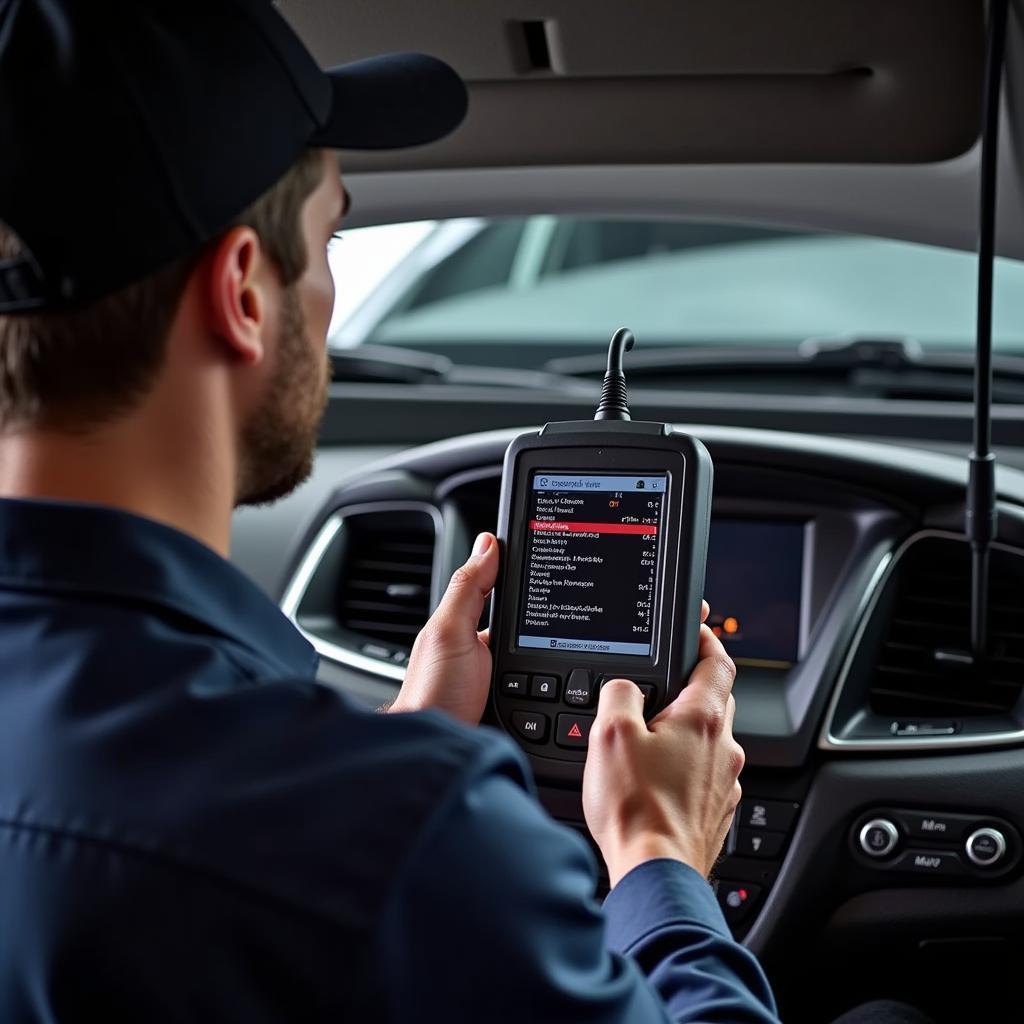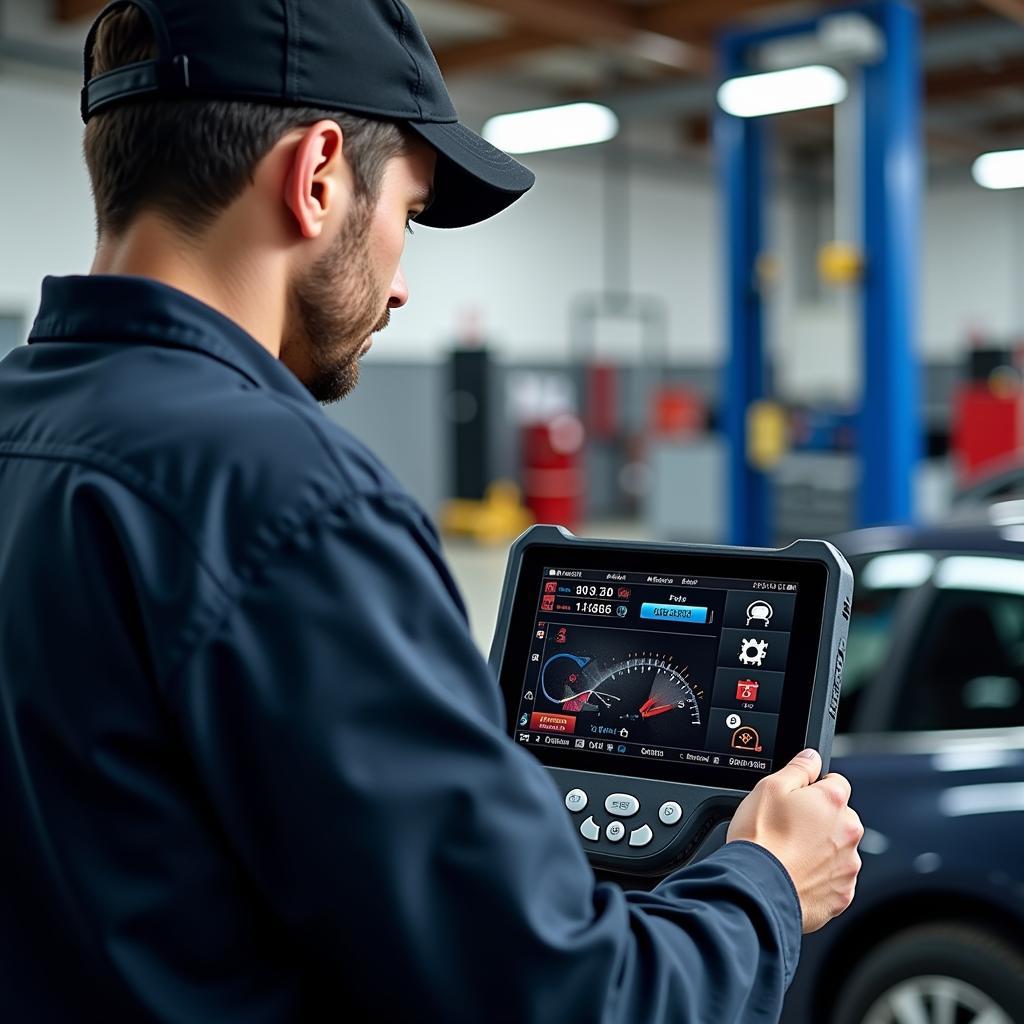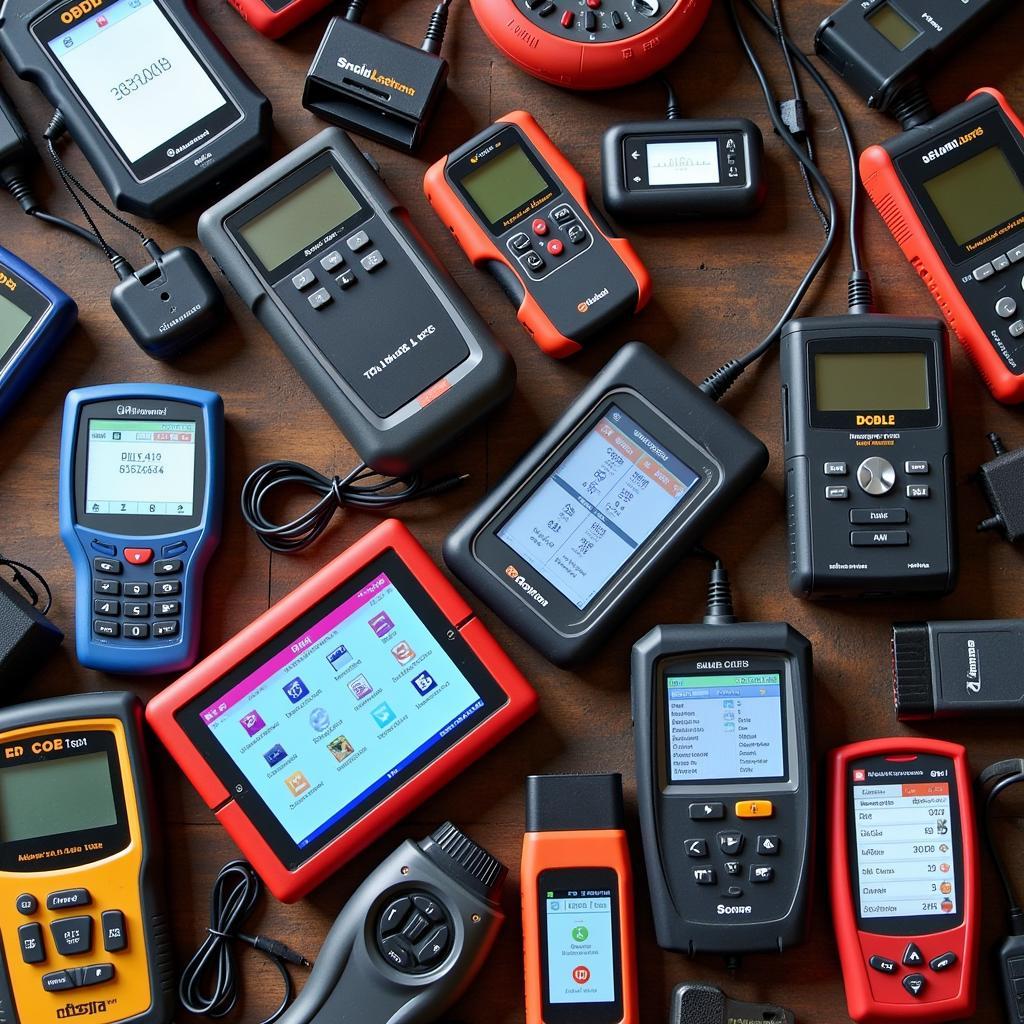Choosing the right car diagnostic tool can feel overwhelming with countless options flooding the market. Whether you’re a seasoned mechanic or a car enthusiast, having a reliable diagnostic tool is crucial for identifying and resolving vehicle issues efficiently. This review will delve into the world of car diagnostic tools, providing you with the knowledge to make an informed decision.
Understanding Car Diagnostic Tools
Before we dive into specific products, it’s essential to understand what car diagnostic tools are and how they work. These devices act as a window into your car’s computer system, reading and interpreting the Diagnostic Trouble Codes (DTCs) generated by the onboard computer. These codes provide valuable information about the health and performance of various vehicle systems, including the engine, transmission, brakes, and emissions systems.
 Mechanic using an OBD2 scanner on a car
Mechanic using an OBD2 scanner on a car
Types of Car Diagnostic Tools
Car diagnostic tools come in various shapes and sizes, each catering to different user needs and budgets.
1. Basic Code Readers
These entry-level devices are ideal for DIY enthusiasts who want to read and clear basic DTCs. They are generally affordable and easy to use, but their functionality is limited compared to more advanced options.
2. OBD2 Scanners
OBD2 scanners are a step up from basic code readers, offering more advanced features such as live data streaming, freeze frame data, and emissions readiness checks. They are suitable for both DIYers and professional mechanics looking for a versatile tool.
3. Professional-Grade Scan Tools
As the name suggests, professional-grade scan tools are designed for experienced mechanics and automotive technicians. These sophisticated devices offer comprehensive functionality, including module programming, bi-directional controls, and advanced coding capabilities.
 Professional mechanic using a high-end car diagnostic tool
Professional mechanic using a high-end car diagnostic tool
Key Features to Consider
When choosing a car diagnostic tool, consider the following factors:
- Vehicle Compatibility: Ensure the tool is compatible with your car’s make, model, and year.
- Software Updates: Regular software updates are essential for maintaining compatibility with newer vehicle models and accessing the latest features.
- Data Display: A clear and easy-to-navigate display is crucial for interpreting diagnostic data.
- Durability: Choose a tool built to withstand the rigors of a garage environment.
- User Friendliness: The tool should be intuitive to use, even for beginners.
Top Car Diagnostic Tool Recommendations
Here are some highly-rated car diagnostic tools across different categories:
- Best Overall: Full auto diagnostic tool
- Best Value for Money: Autel MaxiCOM MK808
- Best for DIYers: Universal car diagnostic tool reviews
- Best for Professionals: Launch X431 V+
 Various car diagnostic tools on a workbench
Various car diagnostic tools on a workbench
Conclusion
Investing in the best car diagnostic tool can save you time, money, and frustration in the long run. Whether you’re a DIY enthusiast or a seasoned professional, understanding your needs and the available options is key to making the right choice. Remember to consider factors like vehicle compatibility, software updates, and user-friendliness.
For personalized recommendations and expert guidance on car diagnostic tools, contact ScanToolUS at +1 (641) 206-8880 or visit our office at 1615 S Laramie Ave, Cicero, IL 60804, USA.

Pingback: OBD2 Diagnostic Tool Auto Scanner Reviews: Everything You Need to Know - Car Scan Tool